Writing: Memoirs
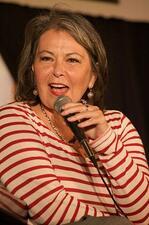
Roseanne
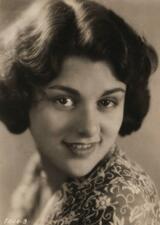
Lillian Roth
Lillian Roth, a singer-actor whose career met with early success but was eventually sidetracked by alcoholism and mental illness, wrote an autobiography that became an international bestseller. At fourteen Roth landed a part in the Shubert show Artists and Models; by seventeen, she was in Ziegfield’s Midnight Follies. She moved to Hollywood for a successful film career before her life fell apart due to mental health challenges and alcoholism.
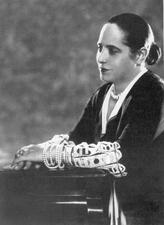
Helena Rubinstein
Helena Rubinstein built a global beauty empire by selling face cream to Depression–era housewives and teaching makeup tricks to film vamp Theda Bara.
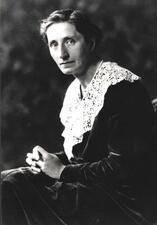
Alice Salomon
Alice Salomon was an educator, feminist, economist, and international activist who was one of the pioneers of the emerging field of professional social work in Germany in the early 20th century. In 1925 she was among the founders of the German Academy for Women’s Social and Educational Work, and she later served as the first president of the International Committee of Schools of Social Work.
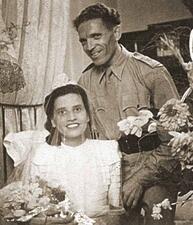
Bouena Sarfatty Garfinkle
Bouena Sarfatty Garfinkle, a Sephardi woman, risked her life over and over again to aid to her community during World War II. At a later stage in her life, Bouena’s historical-literary acumen enabled her to record Jewish life in Salonika during the twentieth century, including the devastation to her community at the hands of the Nazis.
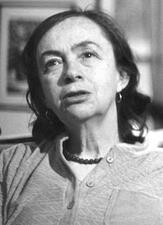
Beyle Schaechter-Gottesman
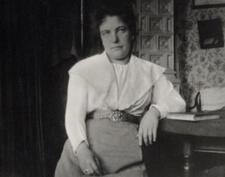
Therese Schlesinger-Eckstein
Therese Schlesinger’s life was characterized by her lifelong passion for learning and her endeavor to improve the plight of working-class women. She was a dedicated feminist who was inspired by the ideals of socialism, struggling to combine both of these political passions within the Austrian Social Democratic Party.
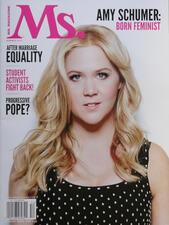
Amy Schumer
Amy Schumer is one of America’s most loved and successful comedians. Her career is built on a true riches-to-rags-to-riches story and is firmly centered on growing up in an unconventional Jewish upbringing.
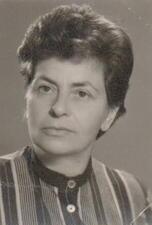
Sarah Shner-Nishmit
Polish author and historian Sarah Shner-Nishmit traveled constantly to evade capture during World War II, working at a labor camp and joining a partisan group. Shner made aliyah in 1947 and subsequently began her writing career, which included children’s books and historical research. She also helped found Kibbutz Lohamei ha-Getta’ot, where she lived until her death.
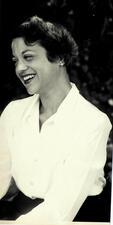
Wilma Shore
Wilma Shore was a writer and teacher most active between the 1940s and the 1960s. She lived at various times in Los Angeles and New York City, settling finally in New York City. Involved with left-wing political activity, she and her husband were blacklisted during the House Committee on Un-American Activities hearings.
Rose Shoshana
Rose Shoshana began her acting career in the Yiddish theater world, playing Manke in Got fun Nekome in 1908. She went on to perform across Europe, America, and Asia. When she arrived in New York in 1946, she began a career as a novelist, writer, translator, and journalist at the Forverts.
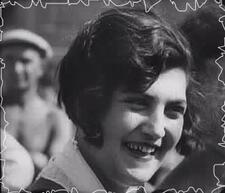
Esfir Il’inishna Shub
Esfir Shub was active as an editor, director, and writer of nonfiction films for twenty years, from 1927 to 1947—one of the few women in the Soviet Union at that time to achieve some standing in the film industry. Shub found success as a woman in the film industry by pioneering the form of compilation documentary and by producing technically competent work that satisfied the political needs of the communist moment.
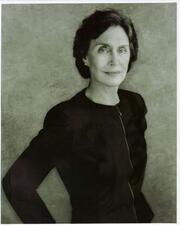
Alix Kates Shulman
Alix Kates Shulman is a radical feminist writer and activist and a leader in the second-wave feminist movement of the 1960s through 1980s. She is best known as the author of “The Marriage Agreement” (1970) and the best-selling Memoirs of an Ex-Prom Queen (1972), which was heralded as the “first important novel of the Women’s Liberation movement.” She was honored with a Clara Lemlich Award for a lifetime of social activism in 2018.
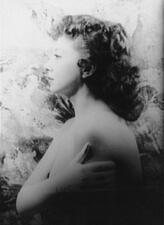
Beverly Sills
Beverly Sills was a trailblazing opera singer who, after a robust singing career at the New York City Opera Company (NYCO) and the Metropolitan Opera House, became the first female director of the NYCO, and the first female chair of the Lincoln Center board. Sills defied the odds in her career accomplishments while raising two children with disabilities and being actively involved with several charitable organizations.
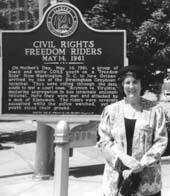
Carol Ruth Silver
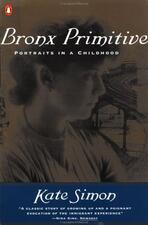
Kate Simon
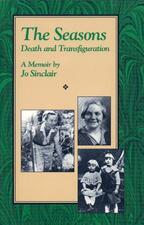
Jo Sinclair
Chava Slucka-Kesten
Chava Slucka-Kesten started teaching in Warsaw before World War II and continued her career through the war in Moscow. After the war she became an author and sustained her political involvement. Writing from the perspective of a politically engaged woman, Slucka-Kesten offers a unique glimpse into pre- and post-war Jewish life in Poland’s cities and villages, as well as into the early years of the State of Israel.

Susan Sontag
Susan Sontag was one of the most prominent American writers of the twentieth century. Her work across cultural criticism, fiction, drama, and film, as well as her public persona, made her an icon of the New York intelligentsia whose writing on photography, illness, and art continually inspire engagement and debate.
Bella Spewack
Bella Spewack, in collaboration with her husband Sam, is known for writing some of the most memorable works of musical theater history, including Leave It to Me (1938) and Kiss Me Kate (1948). The Spewacks also wrote screenplays for several 1940s Hollywood hits, such as Weekend at the Waldorf. The couple contributed to many Jewish organizations and founded the Spewack Sports Club for the Handicapped in Ramat Gan, Israel.

Susan Stamberg
Susan Stamberg, the first full-time woman anchor of a national nightly news broadcast, played an important role in making National Public Radio (NPR) a news organization that offered pioneering opportunities to women journalists. Her half-century career at NPR opened the way for other women by demonstrating competence, originality, and compassion in reporting and interviewing.
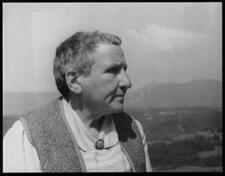
Gertrude Stein
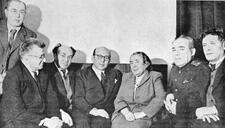
Lina Solomonovna Stern (Shtern)
Lina Shtern, biochemist and physician, was the first woman professor at the University of Geneva and the first woman named to the Soviet Academy of Sciences. Born in Latvia, then part of the Russian Empire, she returned to the Soviet Union out of political idealism. A member of the Jewish Anti-Fascist Committee during World War II, she was a victim of postwar repressions that targeted both scientists and Jews.
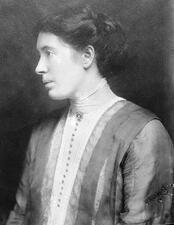
Rose Pastor Stokes
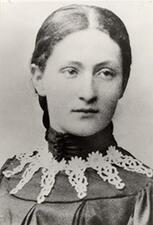
Rahel Straus
Rahel Goitein Straus, a pioneering woman medical doctor trained in Germany, was a model “New Jewish Woman” of the early-20th century. Successfully combining a career as a physician with marriage and motherhood, she committed herself to Jewish and feminist causes and organizations throughout her life, while also embracing Zionist ideals.


